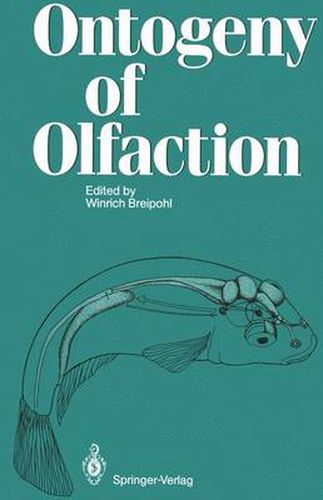Readings Newsletter
Become a Readings Member to make your shopping experience even easier.
Sign in or sign up for free!
You’re not far away from qualifying for FREE standard shipping within Australia
You’ve qualified for FREE standard shipping within Australia
The cart is loading…






This title is printed to order. This book may have been self-published. If so, we cannot guarantee the quality of the content. In the main most books will have gone through the editing process however some may not. We therefore suggest that you be aware of this before ordering this book. If in doubt check either the author or publisher’s details as we are unable to accept any returns unless they are faulty. Please contact us if you have any questions.
The impacts of specifically experienced external and internal environments upon phylogenetically established pathways of ontogenetic development seem to be responsible for the intra-species variation of organisms. Therefore normal function, as well as disorders of sensory systems, can often be better understood by considering the principles of ontogenetic maturation and the time schedule of environmental influences during that period. Sensory organs and systems have long been considered to be hereditally determin ed for their analysis of the environment. However, it is becoming more and more clear that their specificity depends also upon the sequence and nature of environ mental impacts, impacts during highly sensitive periods of postnatal life being most effective. The present book, using an interdisciplinary approach, has brought together various descriptions of developmental processes for one of the phylogenetically oldest sensory analytical circuits, the olfactory system. Although investigations of a wide range of vertebrates are included, from marsupials to man, the main attention was given to rodents, the most frequently used experimental animal in this fields of research. Authors have been asked for reviews and original considerations on the rationales of developmental principles in the olfactory system, and wherever appropriate to highlight its uniqueness or similarities with other parts of the nervous system. Authors were also asked to consider future needs of research in their fields, to describe their own approaches in this context, and to outline general horizons of neurodevelopmental research.
$9.00 standard shipping within Australia
FREE standard shipping within Australia for orders over $100.00
Express & International shipping calculated at checkout
This title is printed to order. This book may have been self-published. If so, we cannot guarantee the quality of the content. In the main most books will have gone through the editing process however some may not. We therefore suggest that you be aware of this before ordering this book. If in doubt check either the author or publisher’s details as we are unable to accept any returns unless they are faulty. Please contact us if you have any questions.
The impacts of specifically experienced external and internal environments upon phylogenetically established pathways of ontogenetic development seem to be responsible for the intra-species variation of organisms. Therefore normal function, as well as disorders of sensory systems, can often be better understood by considering the principles of ontogenetic maturation and the time schedule of environmental influences during that period. Sensory organs and systems have long been considered to be hereditally determin ed for their analysis of the environment. However, it is becoming more and more clear that their specificity depends also upon the sequence and nature of environ mental impacts, impacts during highly sensitive periods of postnatal life being most effective. The present book, using an interdisciplinary approach, has brought together various descriptions of developmental processes for one of the phylogenetically oldest sensory analytical circuits, the olfactory system. Although investigations of a wide range of vertebrates are included, from marsupials to man, the main attention was given to rodents, the most frequently used experimental animal in this fields of research. Authors have been asked for reviews and original considerations on the rationales of developmental principles in the olfactory system, and wherever appropriate to highlight its uniqueness or similarities with other parts of the nervous system. Authors were also asked to consider future needs of research in their fields, to describe their own approaches in this context, and to outline general horizons of neurodevelopmental research.